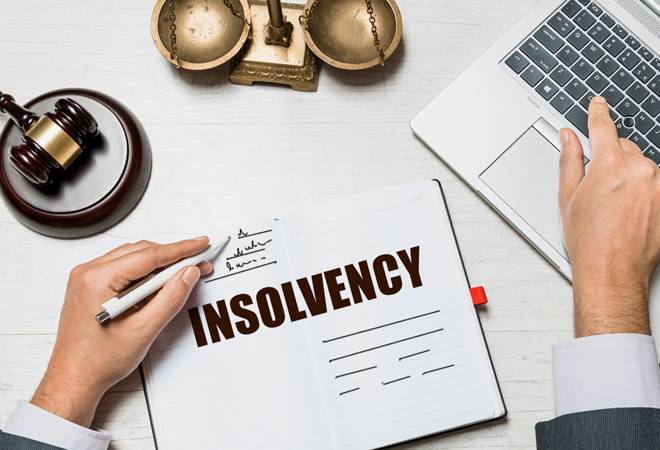Some Known Details About Insolvency Practitioner
Some Known Details About Insolvency Practitioner
Blog Article
All About Insolvency Practitioner
Table of ContentsThe Best Guide To Insolvency PractitionerInsolvency Practitioner Can Be Fun For AnyoneInsolvency Practitioner Things To Know Before You Get ThisExcitement About Insolvency PractitionerThe Ultimate Guide To Insolvency PractitionerNot known Incorrect Statements About Insolvency Practitioner An Unbiased View of Insolvency Practitioner
Insolvency is when responsibilities are higher than the worth of the firm, or when a debtor can not pay the debts they owe. A firm can end up being insolvent because of a variety of circumstances that bring about poor capital. When faced with insolvency, an organization or individual can contact lenders directly and restructure debts to pay them off.Insolvency can bring about bankruptcy procedures, in which lawsuit will be taken versus the insolvent person or entity, and properties might be liquidated to repay arrearages. Service proprietors may get in touch with creditors directly and restructure debts right into even more manageable installments. Creditors are commonly amenable to this strategy since they desire to be paid back and prevent losses, also if the payment gets on a delayed routine.
The Best Strategy To Use For Insolvency Practitioner
The proprietor creates a proposal detailing exactly how the financial debt may be reorganized using expense decreases or other prepare for support. The proposal reveals creditors just how the service may produce adequate capital for profitable operations while paying its financial debts. Normally, a forgiven debt may be taken into consideration income by the Irs (IRS).

Not known Details About Insolvency Practitioner
The company might wind up paying huge amounts of cash in damages and be overcome procedures. When operations stop, so does the firm's earnings. Absence of earnings causes unsettled costs and creditors asking for cash owed to them. Some business come to be insolvent due to the fact that their goods or services do not evolve to fit consumers' transforming needs.
Expenses surpass earnings and bills remain overdue. Kinds of bankruptcy include cash-flow insolvency and balance-sheet insolvency. Cash-flow bankruptcy happens when a company has the assets to cover their financial debts however they are in the wrong form, such as property instead of fluid funds. Balance-sheet bankruptcy, on the other hand, suggests an absence of properties in any kind of form to cover financial obligations.
The IRS states that a person is bankrupt when the overall responsibilities go beyond complete assets. A insolvency, on the various other hand, is an actual court order that portrays exactly how a bankrupt person or company will pay off their creditors, or just how they will certainly offer their possessions in order to make the settlements.
Some Ideas on Insolvency Practitioner You Should Know

Understanding the factors that can bring about bankruptcy, such as overspending, can help you prevent bankruptcy and its repercussions.
What Does Insolvency Practitioner Do?
It is well recognized that supervisors and officers of firms (and managers of restricted responsibility firms) owe fiduciary responsibilities to their companies and their investors (or participants). These fiduciary responsibilities are specified by state laws and, though there are variants from state to state, they commonly include an obligation of loyalty and a task of treatment.
The duty of care calls for supervisors and officers to exercise persistance, to make informed decisions, and to act in great faith to make sure that their actions are in the most effective rate of interest of the company. Though past the extent of this conversation, some states enable these obligations to be limited either by so noting in the organizational papers or following other requirements.
What Does Insolvency Practitioner Mean?
A lot of index states specify bankruptcy in 2 ways( 1) when a firm's liabilities end up being better than the amount of its properties or (2) when the business comes to be incapable to pay its debts as they end up being dueand welcome both meanings (Insolvency Practitioner). The shift in duties occurs due to the fact that when a company is bankrupt, there is no value in the company past that owed to the business's creditors to ensure that the equity holders no more have an economic risk in the business
Beware about offering shareholders preferential therapy at the expense of lenders (e.g., accrediting and moneying a dividend or a supply redemption). Take care regarding favoritism between classes of shareholders. Make practical efforts to learn all the truths before taking a certain strategy; directors should truly think that any kind of decisions made remain in the very best interests of the corporation in its entirety (i.e., choices will be examined in knowledge in light of the impact of such actions on the company).
In any type of bankruptcy or bankruptcy case, repayments made to certain creditors at the expenditure of other creditors can be clawed back, especially if there is some link between the firm and the lender. Take into consideration suggesting at an annual stockholder meeting (or any kind of various other conference of stockholders) a resolution affirming that all prior business choices and actions taken by the directors and officers of the company were taken in great belief after an exercise of reasonable treatment.
All about Insolvency Practitioner
Completely divulge any personal or service relationships with events beyond of deals involving the firm to prevent the appearance of a conflict of rate of interest. In examining prospective fund raising transactions or a sale of possessions of the troubled company, be aware that these read what he said transactions may be inspected later on in light of any succeeding growth of directors' fiduciary obligations to consist of creditors.
Report this page